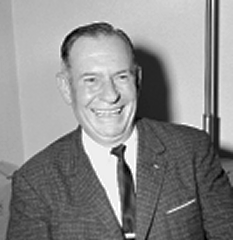
The 1964 United States Senate elections coincided with the election of President Lyndon B. Johnson by an overwhelming majority, to a full term. His Democratic Party picked up a net two seats from the Republicans. As of 2019, this is the last time either party has had a two-thirds majority in the Senate, which would have hypothetically allowed the Senate Democrats to override a veto, convict and expel certain officials, or invoke cloture without any votes from Republicans. The Senate election coincided with Democratic gains in the House in the same year.

The 1990 Massachusetts gubernatorial election was held on November 6, 1990. Republican Bill Weld was elected Governor of Massachusetts for the first time. He beat Democrat John Silber to become the first Republican Governor of Massachusetts since 1975.

The Pennsylvania gubernatorial election of 1994 was held on November 8, 1994. The incumbent governor, Bob Casey, Sr. (Democrat), was barred from seeking a third term by the state constitution. The Republican Party nominated Congressman Tom Ridge, while the Democrats nominated Mark Singel, Casey's lieutenant governor. Ridge went on to win the race with 45% of the vote. Singel finished with 39%, and Constitution Party candidate Peg Luksik finished third, garnering 12% of the vote.
Charles Gibbons was a U.S. politician who served as the Speaker of the Massachusetts House of Representatives from 1953 to 1955 as a Republican. As of 2017, he is the last Republican to serve as Massachusetts Speaker of the House.

The 1978 Massachusetts gubernatorial election was held on November 7, 1978. Former Massachusetts Port Authority executive director Edward J. King was elected to a four-year term, from January 4, 1979, until January 6, 1983. King won the Democratic nomination by defeating incumbent Governor of Massachusetts Michael Dukakis in the Democratic primary.

The 1974 Massachusetts gubernatorial election was held on November 5, 1974. Michael Dukakis was elected to a four-year term, from January 4, 1975 until January 4, 1979. He defeated incumbent Governor of Massachusetts Francis W. Sargent in the general election.

The 1970 Massachusetts gubernatorial election was held on November 3, 1970. Acting Governor Francis W. Sargent was elected to a four-year term. He defeated incumbent Boston Mayor Kevin H. White in the general election.

The 1966 Massachusetts gubernatorial election was held on November 8, 1966. Governor John A. Volpe was reelected to a four-year term. He defeated former Attorney General Edward J. McCormack, Jr. in the general election. This was the first election held since Governor's Term of office was extended from two to four years.

A Massachusetts general election was held on November 5, 2002 in the Commonwealth of Massachusetts.

A Massachusetts general election was held on November 3, 1998 in the Commonwealth of Massachusetts.

The United States Senate election of 1948 in Massachusetts was held on November 2, 1948, with Republican incumbent Leverett Saltonstall defeating his challengers.

The United States Senate election of 1930 in Massachusetts was held on November 4, 1930 with Democrat Marcus A. Coolidge defeating his challengers.

A Massachusetts general election was held on November 4, 1986 in the Commonwealth of Massachusetts.

The 1962 Massachusetts gubernatorial election was held on November 6, 1962. Former Executive Councilor Endicott Peabody defeated incumbent Governor John A. Volpe in the general election.

The 1960 Massachusetts gubernatorial election was held on November 8, 1960. John A. Volpe was elected Governor of Massachusetts to replace Foster Furcolo. Volpe defeated Democrat Joseph D. Ward in the race. Also running were Henning A. Blomen of the Socialist Labor Party of America and Guy S. Williams of the Prohibition Party.

The 1958 Massachusetts gubernatorial election was held on November 4, 1958. Democrat Foster Furcolo was elected Governor of Massachusetts for a second term, defeating Republican Charles Gibbons, Socialist Labor candidate Henning A. Blomen, and Prohibition candidate Guy S. Williams.

A Massachusetts general election was held on November 8, 1966 in the Commonwealth of Massachusetts.

A Massachusetts general election was held on November 3, 1964 in the Commonwealth of Massachusetts.

The 1954 Georgia gubernatorial election was held on November 2, 1954. Running unopposed in the general election, Democratic Lt. Gov Marvin Griffin was elected with 99.98% of the vote.
John W. Costello is an American attorney and politician who served as a member of the Massachusetts House of Representatives, the Massachusetts Governor's Council, and was the Democratic nominee for Lieutenant Governor of Massachusetts in 1964.




















